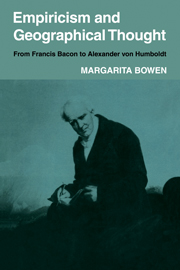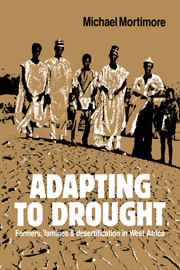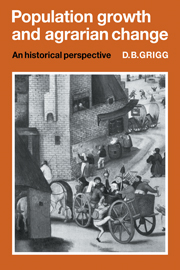Empiricism and Geographical Thought
The age of Francis Bacon marked the beginning of a long period when empirical science was seen as the key to progress in extending man's control over nature. Recently, however, a breakdown of confidence in the outcome of worldwide industrialism and a growing concern over threats to the earth's ecosystems have brought mounting criticism of specialized, exploitative science. Demands for conservation and social responsibility are leading to a reappraisal of the whole philosophy of science that has been dominant for three centuries, and many observers see this as a new scientific revolution, comparable in significance with that of the seventeenth century.
Product details
March 2009Paperback
9780521105590
368 pages
229 × 152 × 21 mm
0.54kg
Available
Table of Contents
- 1. Foundations of modern empiricism
- 2. Science and geography: the seventeenth-century encounter
- 3. Geography in decline: the age of Newton
- 4. Eighteenth-century empiricism: Locke, Berkley and Hume
- 5. On the margins of science: eighteenth-century geography texts
- 6. Science and philosophy: enlightenment conflicts in Europe
- 7. Geography revived: the age of Humboldt
- 8. Epilogue: the way ahead.






